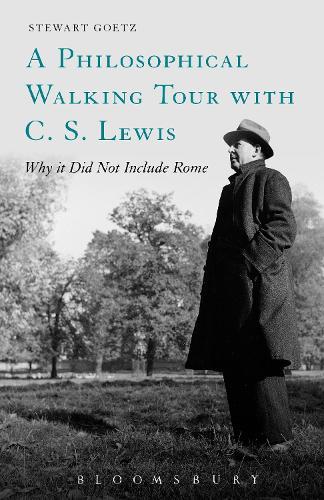Overview
Although it has been almost seventy years since Time declared C.S. Lewis one of the world's most influential spokespersons for Christianity and fifty years since Lewis's death, his influence remains just as great if not greater today. While much has been written on Lewis and his work, virtually nothing has been written from a philosophical perspective on his views of happiness, pleasure, pain, and the soul and body. As a result, no one so far has recognized that his views on these matters are deeply interesting and controversial, and—perhaps more jarring—no one has yet adequately explained why Lewis never became a Roman Catholic. Stewart Goetz's careful investigation of Lewis's philosophical thought reveals oft-overlooked implications and demonstrates that it was, at its root, at odds with that of Thomas Aquinas and, thereby, the Roman Catholic Church.
Full Product Details
Author: Professor Stewart Goetz (Ursinus College, USA)
Publisher: Bloomsbury Publishing Plc
Imprint: Bloomsbury Academic USA
Dimensions:
Width: 14.00cm
, Height: 2.00cm
, Length: 21.60cm
Weight: 0.386kg
ISBN: 9781628923162
ISBN 10: 1628923164
Pages: 200
Publication Date: 12 February 2015
Audience:
Professional and scholarly
,
Professional & Vocational
Format: Hardback
Publisher's Status: Active
Availability: Manufactured on demand

We will order this item for you from a manufactured on demand supplier.
Reviews
This book is doubly intriguing, both as a fresh and illuminating piece of Lewis scholarship, and as an exploration of philosophical issues that are deeply interesting in their own right, such as the relationship between pleasure and true happiness. Goetz makes a convincing case that Lewis retained his Protestant identity not only for reasons typically cited, but also because of fundamental differences with Rome that were philosophical in nature. Anyone interested in these issues will find this volume fascinating as well as informative. Jerry L. Walls, Scholar in Residence and Professor of Philosophy, Houston Baptist University, USA
This book is doubly intriguing, both as a fresh and illuminating piece of Lewis scholarship, and as an exploration of philosophical issues that are deeply interesting in their own right, such as the relationship between pleasure and true happiness. Goetz makes a convincing case that Lewis retained his Protestant identity not only for reasons typically cited, but also because of fundamental differences with Rome that were philosophical in nature. Anyone interested in these issues will find this volume fascinating as well as informative. Jerry L. Walls, Scholar in Residence and Professor of Philosophy, Houston Baptist University, USA An informative argument to the effect that Lewis's views of happiness (Hedonism) and the self (Substance Dualism) were the primary intellectual barriers to him becoming a Roman Catholic--anyone with an interest in Lewis as a philosopher/theologian will find much here that is both pleasurable and good for the soul. T.J. Mawson, Fellow and Tutor in Philosophy, St. Peter's College, University of Oxford, UK
Author Information
Stewart Goetz is Professor of Philosophy and Ross Frederick Wicks Distinguished Professor of Philosophy and Religion at Ursinus College, USA. His past publications include The Purpose of Life: A Theistic Perspective (2012), The Soul Hypothesis: Investigations into the Existence of the Soul (co-edited with Mark C. Baker, 2010), and A Brief History of the Soul (co-authored with Charles Taliaferro, 2011).




